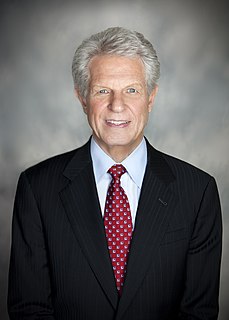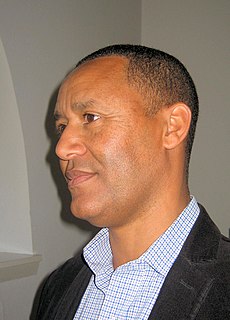A Quote by Daniel Levitin
As soon as you hear a proposition, the creative brain in humans assumes for the moment that it's true, and starts trying to find evidence. It's what computer scientists in the old days used to call 'Fifo:' first in, first out. The first piece of information that gets in has a privileged position, even if it's misinformation.
Related Quotes
I learned that the first technology appeared in the form of stone tools, 2.6 million years ago. First entertainment comes evidence from flutes that are 35,000 years old. And evidence for first design comes 75,000 years old - beads. And you can do the same with your genes and track them back in time.
The early days of any relationship are punctuated with a series of firsts - first sight, first words, first laugh, first kiss, first nudity, etc., with these shared landmarks becoming more widely spaced and innocuous as days turn to years, until eventually you're left with first visit to a National Trust property or some such.
The first sentence of the truth is always the hardest. Each of us had a first sentence, and most of us found the strength to say it out loud to someone who deserved to hear it. What we hoped, and what we found, was that the second sentence of the truth is always easier than the first, and the third sentence is even easier than that. Suddenly you are speaking the truth in paragraphs, in pages. The fear, the nervousness, is still there, but it is joined by a new confidence. All along, you've used the first sentence as a lock. But now you find that it's the key.
My mother used to say, "Tell your brain you want that piece of information or you want to solve this problem, and then just walk away from it. Just forget about it. Just do something else, completely distract yourself, and you'll see, it's like a computer. Eventually, it will deliver it up." And I find that's really true.
Eric Seven does not believe in love at first sight. He corrects himself. Even in that moment, the moment that it happens, he fees his journalist’s brain make a correction, rubbing out a long-held belief, writing a new one in its place. He did not believe in love at first sight. He thinks he might do so now.
So many people are struggling to create happiness while their brain is inundated by noise. If your brain is receiving too much information, it automatically thinks you're under threat and scans the world for the negative first. Because the brain is limited, whatever you attend to first becomes your reality.
The term "informatics" was first defined by Saul Gorn of University of Pennsylvania in 1983 (Gorn, 1983) as computer science plus information science used in conjunction with the name of a discipline such as business administration or biology. It denotes an application of computer science and information science to the management and processing of data, information and knowledge in the named discipline.
Someone recently talked about mass surveillance and the NSA revelations as being the atomic moment for computer scientists. The atomic bomb was the moral moment for physicists. Mass surveillance is the same moment for computer scientists, when they realize that the things they produce can be used to harm a tremendous number of people.




































